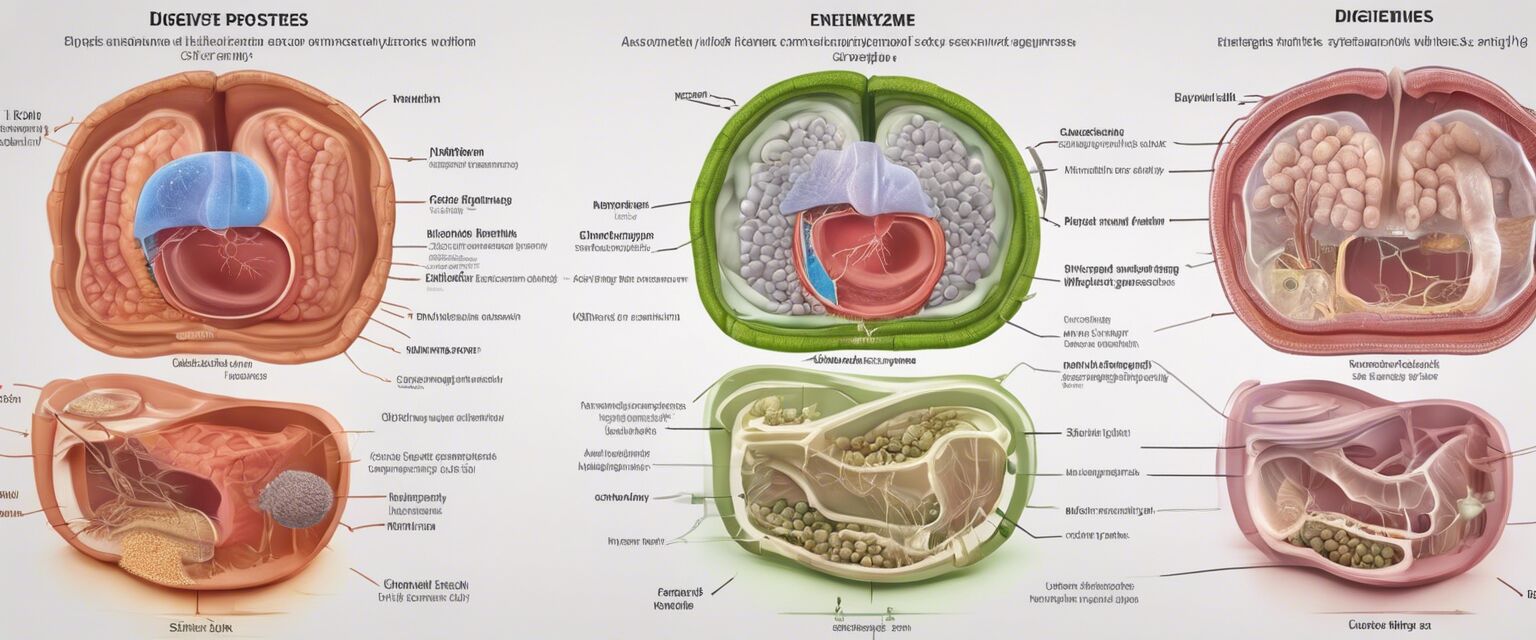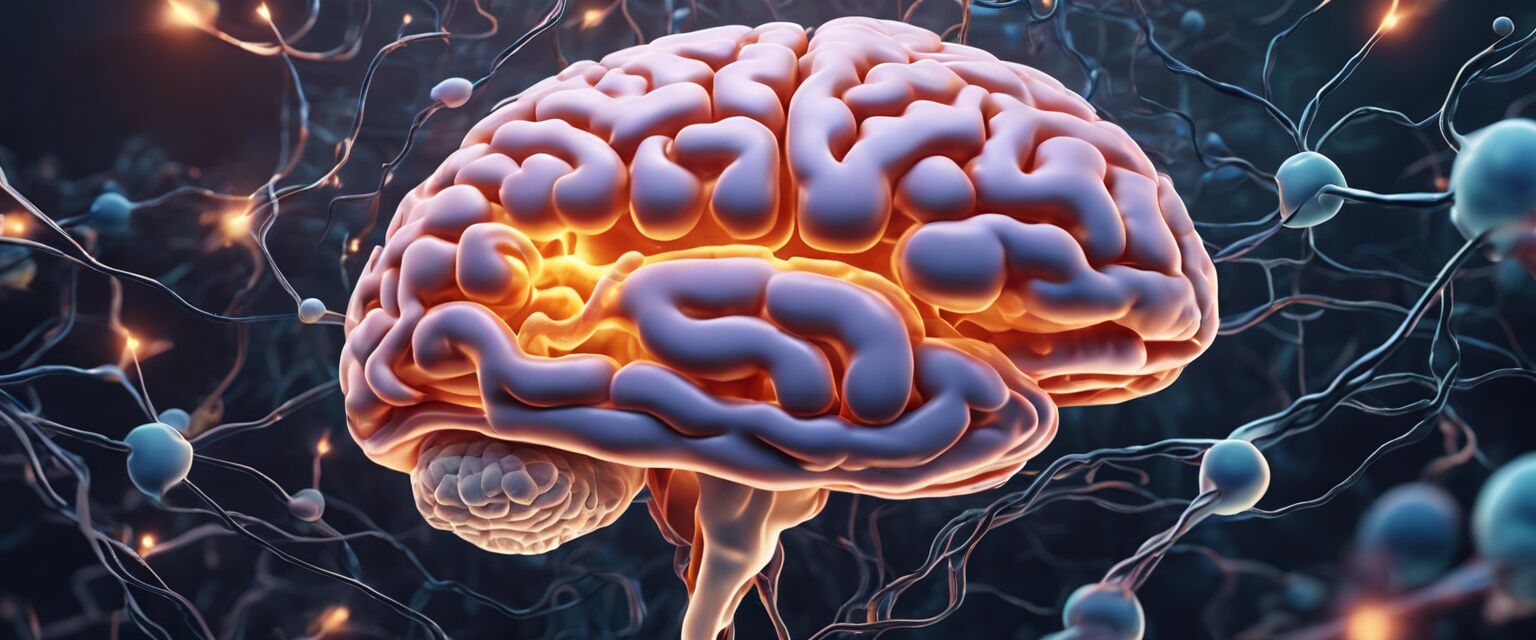
Digestive Enzymes
Key takeaways
- Digestive enzymes play a critical role in breaking down food into nutrients.
- They can be found in certain foods or taken as supplements.
- Understanding the different types of digestive enzymes can help improve digestive health.
- Consulting a healthcare professional is advisable before starting any supplement regime.
Digestive enzymes are essential for the proper functioning of your digestive system. They help break down the food we eat into smaller, absorbable components that our bodies can use for energy, growth, and cell repair. In this article, we will delve into what digestive enzymes are, their types, sources, and how they aid in digestion and nutrient absorption.
What are digestive enzymes?
Digestive enzymes are proteins that speed up chemical reactions in the body, specifically those that break down macromolecules into smaller, absorbable units. They are vital for the digestion of carbohydrates, proteins, and fats.
Types of digestive enzymes
| Type | Function | Source |
| Amylase | Breaks down carbohydrates | Saliva, pancreas |
| Protease | Breaks down proteins | Stomach, pancreas |
| Lipase | Breaks down fats | Pancreas, stomach |
| Saccharase | Breaks down sugars | Intestinal lining |
Sources of digestive enzymes
Digestive enzymes are found in both our bodies and certain foods.
Natural food sources
Incorporating foods that contain natural digestive enzymes can be beneficial for your digestive health. Here are some examples:
- Pineapple - Contains bromelain for protein digestion.
- Papaya - Contains papain, another protein-digesting enzyme.
- Mango - Contains amylase, aiding in carbohydrate breakdown.
- Honey - Contains various enzymes, including diastase and invertase.

Digestive enzyme supplements
Aside from natural food sources, digestive enzymes are also available in supplement form. These supplements can help when your body does not produce enough enzymes on its own. However, it is important to consult with a healthcare professional before starting any supplement.
How do digestive enzymes aid in digestion and nutrient absorption?
Digestive enzymes work by breaking down the food components into simpler forms that can be easily absorbed by the intestinal cells. This process ensures that nutrients are utilized efficiently by the body.
Process of digestion with enzymes
The entire process of digestion can be illustrated in the following steps:
- Food enters the mouth where amylase in saliva begins the breakdown of carbohydrates.
- Food travels down the esophagus to the stomach, where protease starts to break down proteins.
- In the small intestine, lipase breaks down fats, while other enzymes continue breaking down carbohydrates and proteins.
- Nutrients are absorbed through the intestinal walls into the bloodstream.

Common issues associated with digestive enzymes
Some individuals may experience digestive issues due to a lack of certain enzymes. Here are some common conditions:
- Lactose intolerance: Caused by a deficiency in lactase, leading to trouble digesting dairy.
- Pancreatitis: A condition that affects the pancreas' ability to produce digestive enzymes.
- IBS (Irritable Bowel Syndrome): May lead to fluctuating digestive enzyme levels affecting digestion.
Key considerations when using digestive enzymes
When considering the use of digestive enzymes, keep the following points in mind:
- Consult a healthcare provider to understand your specific needs.
- Be aware of potential allergic reactions, especially with plant-derived enzymes.
- Follow recommended dosages on supplements.
- Monitor any changes in digestive health to assess effectiveness.
Pros
- Aids in digestion for those with enzyme deficiencies.
- Can enhance nutrient absorption from food.
- May help reduce bloating and discomfort after meals.
Cons
- Possible side effects if not taken correctly.
- May interact with certain medications.
- Not all digestive issues require enzyme supplementation.
Conclusion
Understanding the role of digestive enzymes can help you make informed decisions about improving your digestive health. Whether through natural food sources or supplements, these enzymes are crucial in the breakdown of food and absorption of nutrients. Always consult a healthcare professional for personalized advice on your digestive health.
Tips for optimizing digestion
- Eat smaller, more frequent meals to ease digestion.
- Stay hydrated to help enzyme function.
- Incorporate fermented foods for additional probiotics.
- Limit processed foods that can be harder to digest.
Learn more about digestive health
If you are interested in enhancing your digestive health, explore our other articles on:







